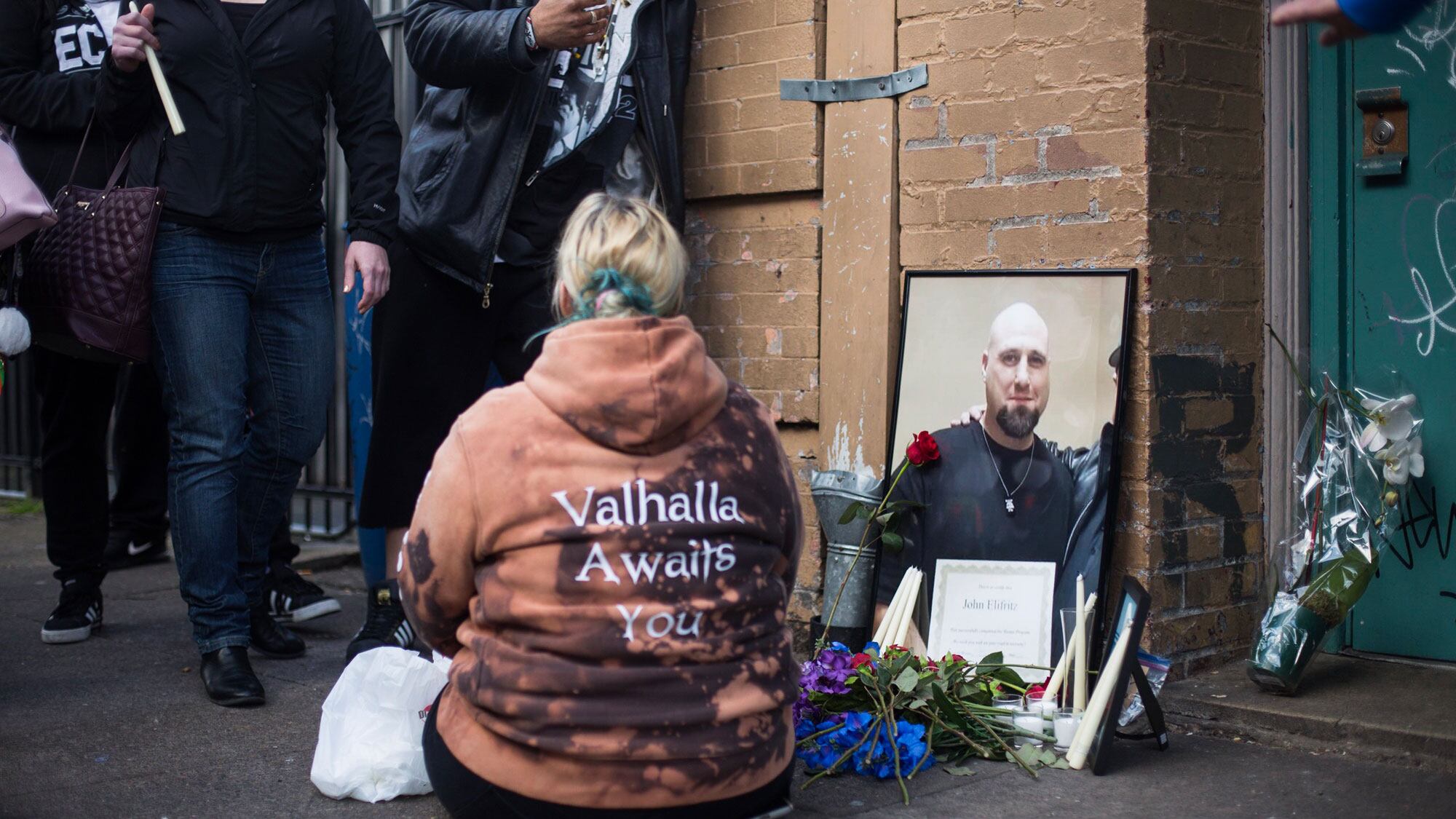The man shot and killed by Portland police on April 7 was a self-identified member of a white supremacist gang, the European Kindred, according to an August 2007 Portland Monthly profile of the gang and several of its members.
John Andrew Elifritz appears in a photograph taken at a group-therapy session for convicted felons, sitting next to European Kindred founder David Kennedy.

"We were like a pack of wild dogs," Elifritz is quoted as saying in the Portland Monthly piece. "We went really hard-core."
The story describes Elifritz as a "childhood friend" of Kennedy and says he served time with the gang leader in Snake River Correctional Institution in Ontario.
The Oregon Department of Corrections declined to confirm whether Elifritz had been a member of the European Kindred during his incarceration, saying the agency was cooperating with law enforcement and could not release information about an ongoing investigation.
It is unclear whether Elifritz had maintained his ties to the EK over the last eleven years. His family members could not immediately be reached for comment.
The Portland Police Bureau declined to comment on whether officers knew about Elifritz's connection to the European Kindred before the shooting. However, the city auditor's office found last month that the bureau keeps an informal but detailed list of active gang members that officers could have consulted.
Elifritz's gang affiliation is likely to raise complicated feelings in a city where white supremacy and police brutality are both sensitive topics.
The European Kindred is a white separatist gang with a history of violence against people of color. Its prominence in Portland was featured in 2010 by the Southern Poverty Law Center. The rise of such hate groups has alarmed Portlanders in the past year, particularly in communities of color.
But Elifritz's past does not diminish questions about whether Portland police acted with excessive force when they responded to reports of a troubled man harming himself with a knife at a Portland homeless shelter on Saturday.
Officers had been called hours before the shooting because Elifritz was acting erratically and threatening to cut his own throat. They encountered him once in the afternoon, but when he fled the police did not follow him.
Police say Elifritz unsuccessfully attempted to steal a car and then took a woman's car by force. He allegedly crashed the stolen car before bursting into an Alcoholics Anonymous meeting at Cityteam Ministries Portland Shelter. Witnesses told The Oregonian that Elifritz had a knife and had been cutting himself when officers showed up.
In less than a minute, officers shot bean bags at Elifritz, ordered him to drop the knife, and then seven officers and one Multnomah County Sheriff's deputy opened fire. Bystander video shows that Elifritz was separated from the law enforcement agents by a room's length and, at times, a short wall that formed a physical barrier between them.
At least four of the officers who shot at Elifritz had been previously scrutinized for using excessive force or other controversial police actions.
One officer had been named by the U.S. Justice Department in an example of Portland police's tendency to use excessive force against people struggling with mental illness. Another had previously been involved in a fatal police shooting after a suspect shot and injured an officer. Yet another was found by Portland City Council to have acted improperly by shocking a man on a bicycle with a taser six times in 15 seconds.
Portland activists, some of whom already know about Elifritz's connections to white supremacy, are urging people to keep the focus on Portland police actions.
"Regardless of his ideology, this man was in crisis," local organizer and Portland's Resistance leader Greg McKelvey said on Twitter. "He needed help, not a bullet."
At the time the Portland Monthly story published, Elifritz said he'd already spent 12 years in prison, and had been around when EK started in Snake River.
"It was a way to look at yourself and be proud," he told the magazine. "There was a lot of that in the beginning. Being proud of who you are. Keeping your lineage running. That's what attracted me to EK: knowing that I can rely on these guys for anything."

